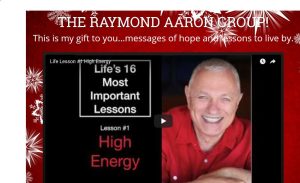 Life’s Most Important Lessons: Your Starting Point for Renewal and Great Success
Life’s Most Important Lessons: Your Starting Point for Renewal and Great Success
My first mentor was Raymond Aaron, and this amazing man continues to be influential in my life. Recently Raymond created a series of sixteen short videos titled “Life’s Most Important Lessons” and I was so inspired by each of these life lessons and gems that I decided to share them with you so that you will benefit along with me and many thousands of others who follow and emulate Raymond’s great wisdom.
The original idea for this series of life’s most important lessons came from his amazing wife, Karyn, a loving woman whom I greatly admire for so many reasons. Raymond saw the value of this to you and I and followed through and then enhanced them further, all based on Karyn’s vision.
These lessons are based on the idea of the Advent calendar, a tradition begun in the mid-19th Century to mark the 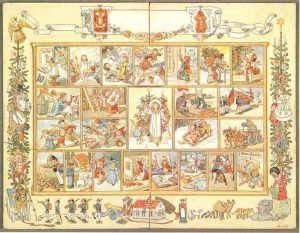 days leading up to Christmas. Instead of giving us a little piece of chocolate each day for sixteen days, we receive a new video with another one of life’s most important lessons. Raymond refers to these as “messages of hope and lessons to live by” and uses concrete examples for each one. When he was sending them out on each of the days in December leading up to Christmas, he prefaced them by saying “I hope you are enjoying my Advent series of videos and I hope you will incorporate these wonderful Life’s Most Important Lessons into your life.” I am most definitely doing exactly this and hope that you will come aboard as well.
days leading up to Christmas. Instead of giving us a little piece of chocolate each day for sixteen days, we receive a new video with another one of life’s most important lessons. Raymond refers to these as “messages of hope and lessons to live by” and uses concrete examples for each one. When he was sending them out on each of the days in December leading up to Christmas, he prefaced them by saying “I hope you are enjoying my Advent series of videos and I hope you will incorporate these wonderful Life’s Most Important Lessons into your life.” I am most definitely doing exactly this and hope that you will come aboard as well.
Raymond describes this series as his gift of education to you and I. Each video has a theme and a lesson and I recommend taking some notes while you watch. Then go back and review each one before you go on to the next life lesson. These are little gems of wisdom from a man I love and respect. I would most certainly not have the life I now enjoy without his advice, guidance, and mentoring over the years.
Life’s Most Important Lessons – Let’s Get Started…
Lesson #1 – High Energy – In this first video and lesson Raymond explains the importance of being a “high energy” person every day of our life. At some point I began to realize that I had become a person with high energy most of the time, and that simply by entering a room I could raise the vibration of everyone who was there. Over the years I have refined this skill so that the people I am with barely notice a difference until all at once they are alive and excited about what is to come. He quotes the Dalai Lama here, who believed that we must do more of what we love and less of what we do not love in order to keep our energy at its highest vibration.
Raymond says that this is the gift he was most like to give you and I if he could grant us one thing to improve our lives overall. You achieve this state by doing the things that you love on a very regular basis.
He further explains that this is based on a gradient scale, meaning that we must increase our energy from where we are right now to closer to where we want to be. Also, this must be authentic and sincere in order for us to experience all of the benefits of having high energy.
Lesson #2 – No Prejudice – Here Raymond explains that “the release of darkness is the greatest brightness there is” in the world. He shares the great story of mathematician and cryptanalyst Alan Turing, who helped the Allies win the Second World War with his breaking of the codes and ciphers used by the Nazis. It has been estimated that this work shortened the war in Europe by more than two years and saved over fourteen million lives.
Raymond shares this story because Turing was later (in 1952) convicted of and prosecuted for homosexual acts in the U.K., and died less than two years later. In 2013 Queen Elizabeth II granted him a posthumous pardon and British Prime Minister Gordon Brown made an official public apology on behalf of the British government for “the appalling way he was treated.”
Included in this “life’s most important lessons” is a discussion of jokes and stories that are prejudicial in nature, and how we must step up and have the courage to let it be known that we understand how wrong this behavior is to the world around us and in which we live. Humor must not rely on putting anyone else down or referring to any groups of people in a pejorative manner. Make it your rule going forward to not allow or participate in this type of behavior.
Lesson #3 – Communication – Raymond states that communication is the greatest invention of humankind,  and that language is more important than fire or electricity. He feels that we have come to take this for granted with the use of slang and abbreviated writing, such as that used in SMS text messages. Being aware of the problem when it comes to communication (or anything else for that matter) is ninety percent of the cure, according to Raymond. Be sure to speak in the singular to the person you are communicating with every time you talk to any number of people, whether it be one person or a multitude. It turns others off to speak to them in the plural and doesn’t make sense to the individual that is reading or listening only to us.
and that language is more important than fire or electricity. He feels that we have come to take this for granted with the use of slang and abbreviated writing, such as that used in SMS text messages. Being aware of the problem when it comes to communication (or anything else for that matter) is ninety percent of the cure, according to Raymond. Be sure to speak in the singular to the person you are communicating with every time you talk to any number of people, whether it be one person or a multitude. It turns others off to speak to them in the plural and doesn’t make sense to the individual that is reading or listening only to us.
We must each cherish communication in every action we take. Watch your words and your spelling and your communications will improve. Why is this important to you and I? Because communication equals income!
Lesson #4 – Responsibility – Raymond first reminds us of the definition of the concept of responsibility, which is the ability and willingness to act as if you are “cause.” “Cause” means that you take full responsibility (not blame) for everything, instead of giving excuses. We must ask ourselves how can we take responsibility for situations throughout the world? The opposite of cause is effect, which refers to feeling like a victim when something occurs in our life.
Do we want to live in a world where no one takes responsibility, or where everyone feels responsible?
Raymond shares a story here called “A Message to Garcia” that is available here. This is a quick read and one that will make you think more intently about the idea of taking responsibility for our lives. I began doing this soon after first meeting Raymond in the spring of 2005 and you cannot imagine how this life lesson alone has changed my life for the better (way better!).
Lesson #5 – Money – What is it? Why is it so sacred? Why do people who go after money many times end up going into debt instead? This may apply to you if you continue to believe that money is a physical universe concept. Material things and “stuff” is the physical manifestation of money, but we must look closer at the cause of money. Raymond offers this definition of money: an agreement, backed by confidence.
Do what you say you’re going to do. Give people that opportunity to have confidence in you, and the money will come pouring in. Confidence builds trust, and that is the most important characteristic you can have when it comes to serving others and earning money. Instead of starting in the physical universe, begin with the spiritual universe and increase the confidence others have in you. Start by making small agreements with people and building their trust and confidence in you as you keep your word and do what you say you will do all of the time. This concept alone may change the way you think about money and enable you to increase your net worth over time.
Lesson #6 – Celebrate Success – Whether it’s your own or someone else’s success, celebrate! As Raymond 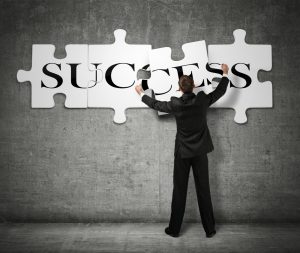 reminds us here, the reason we do this is because a success is not a success unless it is cherished, validated, applauded, and celebrated. And I love the baseball reference he shares as an example of this; the worst thing in life is not that you don’t hit a home run, the worst thing in life is that you hit a home run and no one is in the stands.
reminds us here, the reason we do this is because a success is not a success unless it is cherished, validated, applauded, and celebrated. And I love the baseball reference he shares as an example of this; the worst thing in life is not that you don’t hit a home run, the worst thing in life is that you hit a home run and no one is in the stands.
Part of celebrating success has to do with acknowledgement of a goal achieved. But even greater and more special is acknowledging someone for their “beingness” – their very existence and who they are inside. Raymond says to take action on this one of life’s most important lessons by giving more applause, cherishing, and acknowledgment to others for what they do, but more importantly for who they are.
Lesson #7 – No Hidden Agenda – Do the things that are meaningful to you without having a “secret” or hidden agenda. Raymond’s lesson here reminded me of people I knew decades ago who used to host a part so that they could not invite certain people. Soon this hidden agenda was anything but secret, and people began avoiding this couple completely.
Raymond also includes here that we must be willing to tell others things we may have felt that we just could not share. For me, this is a reminder of how ashamed I was that my mother and I had been homeless twice while I was still in grade school. All those years I believed this fact was somehow a reflection on me or on my mother and I went to great lengths to keep my experience from others. In 2011 I was asked to give a keynote speech at a marketing event and I decided to create a presentation I called “Are You Willing to Do What It Takes?”
As I took the stage in front of about four hundred people the feelings of inadequacy and inferiority began to come up for me. Instead of giving in to them I stood up straight and tall and took the stage when I was introduced. The audience listened intently to my story and cheered when I told about how poor I was while growing up. As I looked out in the audience I saw that many people were sobbing, and when it was over they gave me a standing ovation. From that day forward I have always shared the details of my life and continue to find that my audience resonates with my experiences. It sure feels good to have let go of that in my life, and I ended up writing a book on this topic of doing what it takes in 2016 that quickly became a bestseller.
Lesson #8 – Study – Raymond explains why you cannot ever stop learning. The world is changing so quickly that we must study and learn in order to stay ahead of the curve. And the curve is constantly moving! This is happening in every single field. Companies that refused to change are soon out of business, like Blockbuster Video and Blackberry phones. Taxi drivers have now found themselves in jeopardy as businesses such as Lyft and Uber take over the space that has now changed so drastically.
What should you study? Raymond recommends that you study concepts in your field, transformational wisdom, spirituality, and anything else that is of interest to you. Read, get mentoring, and just keep learning. The content doesn’t matter as much as the process because you must learn how to learn.
Begin your own list of books and other learning materials you can reference at any time. I have a list of books for entrepreneurs here.
Lesson #9 – Be Kind – Raymond reminds us to be kind, sweet, and loving because the people we come in 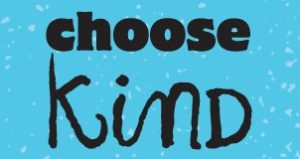 contact with take our words to heart. He shares a three point rule he learned from a spiritual path he studied:
contact with take our words to heart. He shares a three point rule he learned from a spiritual path he studied:
- Is it true?
- Is it necessary?
- Is it kind? (the most important of the three)
You must be intentional in your quest to always be kind in what you choose to say to someone. Think before you speak out loud and know that your words have great power when they meet the air in the room and land upon others.
This lesson reminded me of a book called Wonder by R.J. Palacio, that has now been made into a film. The author, actors, and filmmaker even have a hash tag #ChooseKind that is used widely on social media.
Lesson #10 – Be Grateful – Raymond shares what he is grateful for in his life, and this serves as a reminder to me that we all have so much abundance in our lives that we may be taking for granted. He says that you must be grateful for everything you have, not just the good things.
Werner Erhard, author and creator of the EST movement discusses the concept of life “when it is working” versus when it is not. This concept began in the early 1970s and still holds great merit today.
Singer, songwriter, and poet Leonard Cohen has a line in his song “Anthem” that states everything has a crack in it; that’s how the light gets in. It’s only when things are shaken up and appear to not be working that you grow as a human being. Here’s the takeaway:
- Be grateful
- When your life isn’t working, look for the silver linings.
Lesson #11 – Act on Impulse – Even though once in awhile things go askew when you act on impulse, so what? Do it anyway! Raymond shares the story of the time in 1997 he was on the island of Barbados for a vacation and a woman named Janice Meek and her son, Daniel Byles arrived from the Canary Islands off the coast of Africa – by crossing the Atlantic Ocean in a rowboat! He was able to meet and interview her, and ten

years later Janice called Raymond up and challenged him to join her for one of the world’s toughest races, the Polar Race (a 350 mile foot race to the Magnetic North Pole). He did it, and I remember hearing the details of that trip back in 2007 and how he described in vivid detail what had transpired and the lessons he had learned during that adventure. He remains one of fewer than forty people in the world who have accomplished this amazing feat.
Raymond learned to ride a unicycle in his forties, ended a thirty year streak as a vegetarian, and continues to live a life few of us can imagine. He recommends going to a bookstore and purchasing a book or magazine on a topic you have never pursued. Mix it up; keeping things as they are can lead to dead ends and lack of imagination.
Sometimes you have a desire, urge, or prompting to do something on a whim. If you worry about making mistakes or doing something that doesn’t work out, stop worrying and simply take action. Don’t dismiss your impulsive thoughts so easily – just do it and act on impulse!
Lesson #12 – Cherish Your Woman – Raymond speaks from his own perspective here, but this is for women as well. Raymond loves and cherishes his awesome wife, Karyn. Here he shares examples of the little things that mean so much in a relationship.
He also shares the unwritten rules of relationships and I have to admit I have a new perspective on this topic after hearing his thoughts and experiences.
Karyn said to Raymond recently, “Guess who won the husband lottery?” I love that.
And I love and appreciate Raymond’s advice to women – he says…don’t marry, fall in love with, or even date a man who doesn’t cherish you. Now that is true wisdom.
Lesson #13 – Eat Healthfully – Raymond has been in incredible health and physical condition from the time I  have known him, and this is due to the way he eats and takes care of his body. Here he shares the why and what of this practice. He first explains that we are a soul that has a body during our lifetime. If the body is weak and deteriorates then we can’t do much with our lives, causing the soul to deteriorate. There were no overweight cavemen because food was scarce.
have known him, and this is due to the way he eats and takes care of his body. Here he shares the why and what of this practice. He first explains that we are a soul that has a body during our lifetime. If the body is weak and deteriorates then we can’t do much with our lives, causing the soul to deteriorate. There were no overweight cavemen because food was scarce.
Raymond’s answer to this dilemma of recent mankind is to eat healthfully. The food industry’s tactics work against us, so it is up to you and I to choose the correct foods and make this our lifestyle. No diets, just correct eating. This requires both thinking and discipline, two characteristics that you must apply to every aspect of your life.
He only allows himself twenty-five percent fat in any foods he consumes. Also, Raymond eats no dairy of any kind (we are the only species to drink milk from another species), and very little red meat (humans are unable to digest red meat; it rots in our colon). We must eat this way because anthropologically this was what kept us alive. Humans are intended to be mostly vegetarian. Raymond eats lots of vegetables, zero sugar, and no bread or flour. The proof is in the pudding (no pun intended) in that Raymond is thin, strong, and healthy and is able to be at the top of his game every day.
This lesson from Raymond, among these “Life’s Most Important Lessons” is the one I am focusing on the most right now. I have allowed my weight to get into the unhealthful range, and I intend to live a long, healthy life. Perhaps this will be the most meaningful gift and life lesson I will receive from Raymond this year.
Lesson #14 – Validation – We must validate other people and validate ourselves. Make them know that what they did was correct. Raymond’s spiritual coach (he believes in having mentors in all areas of your life you wish to study, improve, and grow) told him to say “that’s very good” to his students and mentees. His coach also added that “affinity trumps correctness”, where affinity refers to creating a loving relationship with someone and correctness refers to accuracy. We must validate someone, even if their answer is wrong. We must say “that’s very good” because the person had the courage to speak up and offer an answer. When someone finally says the answer correctly, you will say “that is correct.”
Validating, even when someone is wrong is so important. This isn’t like math or science, which is black or white, but instead this is the area of humanities where there is a gray area. Say “thank you” and other things that will let people in your life know how much you think of them. Raymond says that it brightens someone’s life when you validate them and I agree completely, based on my own experiences.
Raymond also recommends watching an amazing short video on validation that you can see here. And remember to validate everyone in your life for every little thing. This video is very powerful if you watch it all the way through – about seventeen minutes.
Lesson #15 – Postulates – A postulate is a self-created truth. You think something and it shows up in the physical universe. Thoughts are not things, but they do produce and become things, and everything in our life is something we thought about first. Everything you think comes true, even if it isn’t during the time frame you wanted it to manifest. Everything you have in your life started out as a postulate. Sometimes you may think of someone or something and then it shows up. This is a postulate. You may think of it as a coincidence, but coincidences are simply God’s way of keeping anonymous. And God creates our physical universe; the spiritual universe creates the physical universe. Your soul creates your physical universe with postulates.
Raymond explains why he doesn’t watch television or listen to radio here. He teaches us that everything you think becomes true and that is the reason for his refusal to watch or listen to man’s inhumanity to man on the news. The news is negative and he doesn’t allow that energy into his life. The ingesting of this information on the news creates fear in our lives. He is careful about allowing in prejudicial comments. He doesn’t think negative thoughts, and instead thinks of happy topics. He watches no horror movies or anything similar. There are three physical universes – the one you and I agree to; your physical universe; and Raymond’s physical universe. Raymond’s physical universe is different from yours and mine, but we can change that over time. He completes what he starts and has achieved great things in his lifetime.
Lesson #16 – Choose One Thing Every Day – On this final day of his “life’s most important lessons”, Raymond gives us a choice. Yes, Raymond wants you and I to choose one thing every single day to work on in our life. It does not have to be something new, it just needs to be something that will move us closer to our goals. Completion is of major importance here.
Raymond says that most people the average person gets about fifteen important things completed every single year. They’re just going through the motions of living and not even expecting to complete something every day. You must choose causatively to have a particular thing me the most important thing you will complete that day. This puts you “at cause” and put you in charge of your own life. He gets 365 important things done each year. I guesstimate that I accomplish more than two hundred goals each year, so even though I am well above average I still have lots of room for improvement.
How do we achieve this? By choosing one thing each day that will move our life, our relationship, our business,  or our health forward each day. Use these sixteen of life’s most important lessons as a starting point, a compass to get you from where you are right now to closer to where you would like to be. Keep a notebook or journal, because I learned from Raymond years ago that I must think about, write down, and then review all of my goals regularly. You have the tools you need, so it’s up to you to get started and move forward towards a life you want and deserve.
or our health forward each day. Use these sixteen of life’s most important lessons as a starting point, a compass to get you from where you are right now to closer to where you would like to be. Keep a notebook or journal, because I learned from Raymond years ago that I must think about, write down, and then review all of my goals regularly. You have the tools you need, so it’s up to you to get started and move forward towards a life you want and deserve.
~ ~ ~ ~ ~
So, what do you think of life’s most important life lessons, as taught and explained by my mentor Raymond Aaron? Which ones are most meaningful to you so far? How will you take advantage of Raymond’s wisdom and use it to better your life and create what you most want for your life experience?
These sixteen of life’s most important lessons, when studied, internalized, and implemented will help you to change your life. Just as I was inspired by the messages Raymond is sharing with us here, I hope that you will take these precepts to heart and apply them to your life. Not everyone has someone in their life to share life’s most important lessons with them, so you are now in a unique position to make the changes that will make a difference in your daily life. Again, here are all of the videos for you to watch.
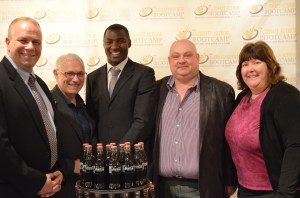 It was Raymond Aaron who first taught me the power of living the mentored life. This was over a decade ago and I continue to have mentors in various areas of my life. In the photo on the left I am joined by Coca-Cola Europe CEO Jim Lafferty, New York Times Best-selling Author Raymond Aaron, new author Mike Pitt, and Co-Director of The Centre for Solutions Focus at Work Mark McKergow, at the Ultimate Author Bootcamp in London.
It was Raymond Aaron who first taught me the power of living the mentored life. This was over a decade ago and I continue to have mentors in various areas of my life. In the photo on the left I am joined by Coca-Cola Europe CEO Jim Lafferty, New York Times Best-selling Author Raymond Aaron, new author Mike Pitt, and Co-Director of The Centre for Solutions Focus at Work Mark McKergow, at the Ultimate Author Bootcamp in London.
If you would like to download the PDF version of this post, click here to do so.

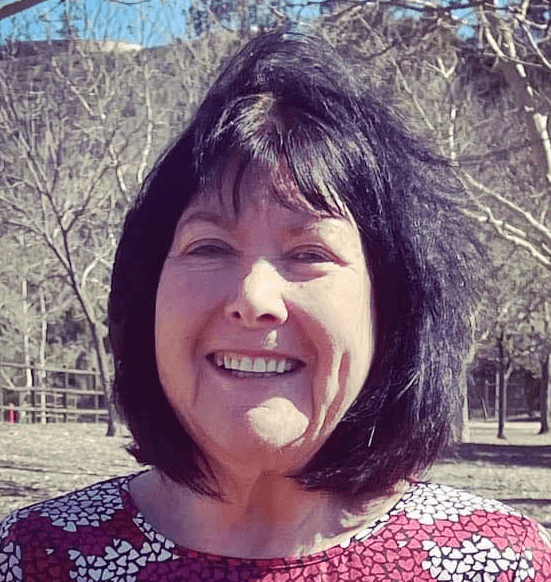




Love this Connie. Thanks for sharing it!
You are most welcome, Cheryl.
Connie Ragen Green
Connie Ragen Green recently posted…Do The Work and Other Precepts